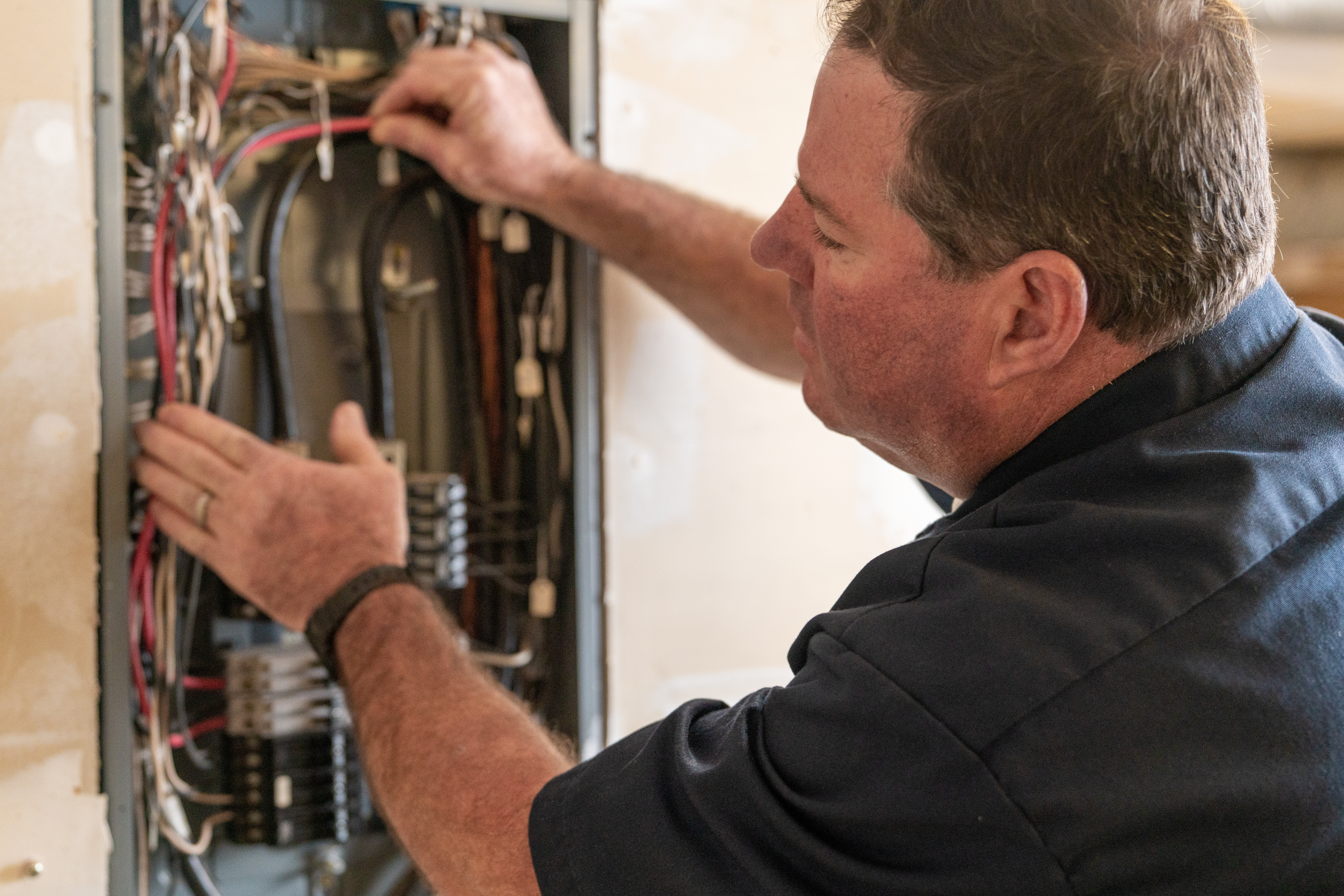
Replacing your electrical panel enhances system reliability and supports modern energy needs. Learn average electrical box replacement costs in New York City.
Stop blowing fuses (literally and figuratively) with these hands-off strategies


With the rise of at-home smart devices and high-powered appliances, many homeowners need more electrical power than their homes can currently handle— especially when spending weekends streaming shows while scrolling social media.
So, does your electrical system need updating to handle all that modern technology has to offer? Here are six hands-off tips to help you get started if so.
Working with electrical panels and your home's electrical wiring can be very dangerous. We highly recommend hiring an electrician to make any upgrades. Use these tips as general advice to get a conversation started with a pro and always seek out professional assistance when necessary.
Seriously, calling in an experienced pro is worth the money to make sure the job is done right the first time and to avoid any injury. Faulty electrical wiring is also the second leading cause of house fires in America, according to the National Fire Protection Association, making hiring a pro that much more vital.
Dim lights and regularly blown fuses aren't just a hindrance that can test your patience. They could be a sign that you need to upgrade your electrical system or potentially point to faulty or inefficient wiring you need to address ASAP.
Here are some signs your electrical system is ready for a boost:
Regularly blown fuses
Lights dim when you use appliances
Light switches feel hot to the touch
Broken outlets
Blown light bulbs
Extraordinarily high electrical bills for your home size
Heat warping on your electrical panel
If you find safety issues like these popping up with your current electrical system, you should contact a pro to replace it right away. An electrical professional can give you proper guidance on your situation and let you know if the signs you're noticing are just an irritant or if you need to address them now.

A one- or two-bedroom home typically comes with 100-amp service, which is now actually required by the National Electric Code (NEC). For larger homes or homes that run large appliances such as central air conditioning, 150- or 200-amp service is standard.
Do you know how much electricity your home is equipped to handle? If not, it's a good idea to find out.
This way, you can plan for future needs and around anticipated home improvement projects. For example, if you're working from home or thinking about installing central AC, you might opt for 200 amps over 150.
For what it's worth, well-maintained electrical panels typically last 25 to 40 years. So if yours is old, it may be time to replace it even if you decide not to upgrade the amperage.
Electrical meters measure how much energy your house consumes. If you're thinking about upgrading the amperage in your home, replacing your meter will save you on energy bills, as newer smart meters are more energy-efficient. The cost to replace an outside electrical meter box is between $500 and $1,000. This includes the cost of the new meter and installation by a professional.
Replacing an electrical meter box that's 10 feet up the side of your house could come with additional charges due to accessibility issues. Paying $125 an hour is a good estimate in most areas.
Your breaker panel is the main distribution point for electronics in your home. If these circuits are overloaded, you may experience power outages or inefficient lighting in your home when running appliances. Your amperage should match or exceed the home's needs. (For example, a 100-amp service shouldn't have 200 amps running on it.)
Adding a new circuit breaker or having a professional electrician install a subpanel can help distribute power more efficiently to your home. If you're doing a home renovation project and considering moving your fuse box, be sure it's out of the way of children.
You can get the most out of your electrical inspection by having a pro check your panel.
Today, structured wiring (also called future wiring) is an interesting proposition for those wanting to upgrade their home electrical system.
The rise in smart devices and Wi-Fi-enabled appliances makes it possible to wire one central device (usually a large television or entertainment system) as the central hub for all smart devices in the home. It can be a more efficient system for running electronic devices in your home, helping to reduce your electricity bills and reducing the amount of electrical power you need to run your devices.
From average costs to expert advice, get all the answers you need to get your job done.

Replacing your electrical panel enhances system reliability and supports modern energy needs. Learn average electrical box replacement costs in New York City.

Rewiring a house in New York City can fix out-of-date wiring and provide electrical systems with modern capabilities, but owners must plan for the electrician's costs appropriately.

How much does it cost to add an electrical outlet in New York City? Explore typical price ranges, permitting needs, and what drives cost in NYC homes.

Here’s what you need to know to reset an outlet without a reset button. Follow this guide for resetting an outlet in a snap.

Selecting the right wire size helps your electrical system run safely and efficiently. Find out the correct wire size for 100-amp service panels.

When installing a new 200-amp service panel, the right wire size is critical to ensuring sufficient amperage.